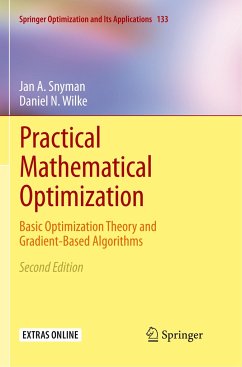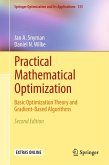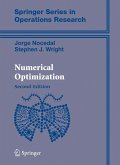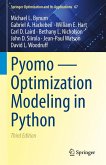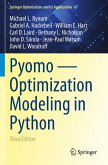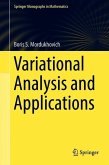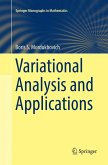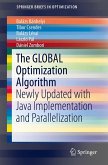This textbook presents a wide range of tools for a course in mathematical optimization for upper undergraduate and graduate students in mathematics, engineering, computer science, and other applied sciences. Basic optimization principles are presented with emphasis on gradient-based numerical optimization strategies and algorithms for solving both smooth and noisy discontinuous optimization problems. Attention is also paid to the difficulties of expense of function evaluations and the existence of multiple minima that often unnecessarily inhibit the use of gradient-based methods. This second edition addresses further advancements of gradient-only optimization strategies to handle discontinuities in objective functions. New chapters discuss the construction of surrogate models as well as new gradient-only solution strategies and numerical optimization using Python. A special Python module is electronically available (via springerlink) that makes the new algorithms featured inthe text easily accessible and directly applicable. Numerical examples and exercises are included to encourage senior- to graduate-level students to plan, execute, and reflect on numerical investigations. By gaining a deep understanding of the conceptual material presented, students, scientists, and engineers will be able to develop systematic and scientific numerical investigative skills.
Bitte wählen Sie Ihr Anliegen aus.
Rechnungen
Retourenschein anfordern
Bestellstatus
Storno

